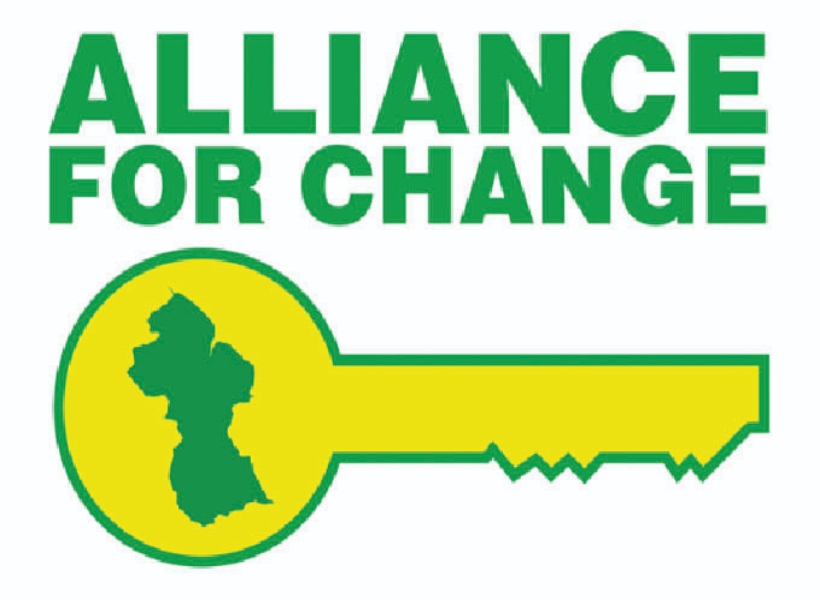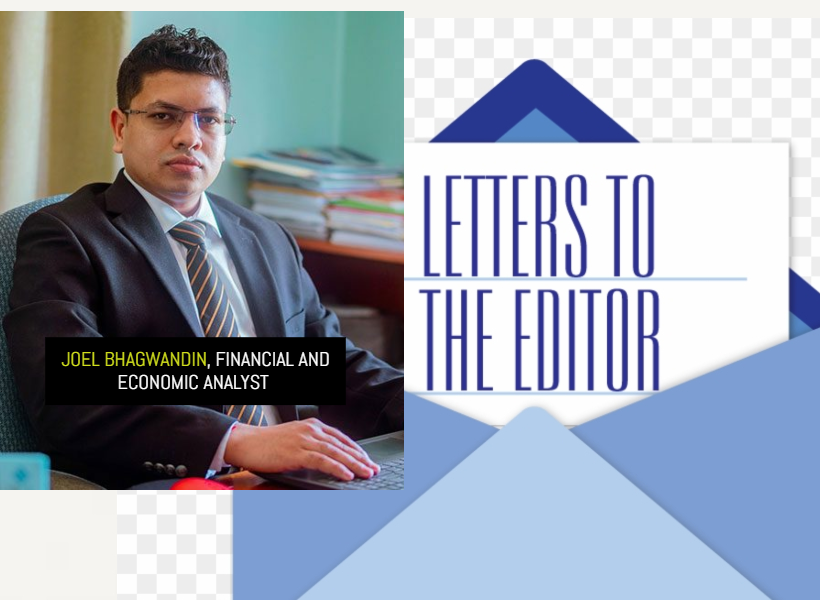Dear Editor,
The APNU+AFC and other opposition aligned organizations such as the Oil and Gas Governance Network (OGGN), have been expressing orgasmic excitement following the reports that surfaced at the 140th Session of the United Nations Human Rights Committee (UN-HRC). It is not difficult to deduce that the line of questioning at the UN-HRC was nothing more than the opposition’s attempt at the construction of a certain political narrative since there were no credible substantiation of their allegations. Notably, one of the sources of information that informed the line of questioning by the UN-HRC was from the OGGN, inter alia, a report submitted to UN-HRC by the OGGN, which was quite amusing.
In the said report, the OGGN complained to the U-HRC about this author, who consistently challenged the OGGN, as well as exposing the intentions, credibility, and legitimacy of that organization. The complain was frivolous to begin with, that the state-owned Guyana Chronicle and the Guyana Times do not publish their responses to this author’s challenging the OGGN and its members. But they conveniently omitted that the other media houses, namely Kaieteur News and Stabroek News extend unlimited coverage to the OGGN, and that those media entities do not publish any responses/rebuttals from this author to the OGGN as well. In fact, it is the editorial policy of the Kaieteur News to not publish any letters/articles from this author.
The main point to note, however, is that the OGGN nonetheless obtains unlimited coverage in the other media entities. As such, their complaint to the UN-HRC was ludicrous apart from the fact that it was not fully representative of the facts of the matter.
In light of the foregoing, perhaps it is worth resuscitating some of the issues and contentions that this author dealt with in the past, that they have taken issue with to the extent that they felt the need to complain to the UN-HRC.
Legitimacy and Credibility Issues of the OGGN
Reportedly, the OGGN had written formally to the Government of Guyana (GoG) on several key issues in the oil and gas sphere. The OGGN is also a staunch critic of the Government’s stewardship of the sector, including issues of governance and transparency.
Hence, if the OGGN wants the GoG to take it seriously, it is reasonable to expect that the OGGN can withstand scrutiny and prove that it is a legitimate organization. In order to do so, the following questions were put forward to the Directors:
i) Can the OGGN prove that it has been granted with a 501 (c) (3) status? If it is indeed a 501 (c) (3) status, then the principals of the organization ought to be in a position to furnish the public with the following documentations: –
a) Can the OGGN publish its 501 (c) (3) determination letter that it obtained from the IRS? All organizations with 501 (c) (3) status are issued with a determination letter by the Internal Revenue Service of the United States Government (IRS).
b) Can the OGGN publish its Bylaws on its website? It would appear that this is a legal requirement for organizations with 501 (c) (3) status, having perused the websites of other credible and legitimate 501 (c) (3) organizations such as the American Red Cross. See link to website here and their Bylaws https://www.redcross.org/about-us/who-we-are/governance.html.
ii) Can the OGGN state its source of funding?
iii) Can the OGGN state whether it has audited financial statements? Pursuant to the rules governing 501 (c) (3) organizations, its financial information must be publicly accessible. In the case of OGGN, it is not.
iv) Can the OGGN state whether it is an advocacy body or a Think Tank?
v) What are the requirements to become a member?
vi) How can one become a member?
vii) What is the Governance Structure?
viii) Can the OGGN state whether it is a public charity or a private foundation?
In order for an organization to be granted the 501 (c) (3) status by the IRS in the United States, it has to adhere to a stringent set of rules and guidelines. Of particular note, one such rule states that a “501 (c) (3) organization is forbidden from using its activities to influence legislation in a substantial way”. Also, under section 501 (c) (3), an organization must not be serving any private interests, including the interests of the creator, the creator’s family, shareholders of the organization, other designated individuals, or other persons controlled by private interests. None of the net earnings of the organization can be used to benefit any private shareholder or individual; all earnings must be used solely for its advancement of its charitable cause”.
The work conducted by the OGGN are arguably inconsistent with, and / or, have departed from their stated mission. For example, the mission states that their success is measured by improving the lives of some 41% of Guyanese living below the poverty line (cited from a questionable World Bank source). While it remains unclear whether they have achieved this, if at all, and how; two of the OGGN’s principal directors have described the carbon credit sale as a fraudulent transaction perpetrated by the GoG. Although the carbon credit funding is deployed to tangibly contribute to the development of the indigenous communities, the OGGN strongly lobbied against this.
With respect to the work produced by the OGGN, assuming that they are functioning as a “think tank”, there is no evidence of any scholarly work produced from 2017 to present on the thematic areas that its principal founders have identified as its main focus. Newspaper letters and opinion pieces are woefully inadequate to be considered scholarly work emanating from such organizations. To substantiate this view, another one of OGGN’s principal director argued that solar energy is cheaper than the gas-to-energy (GTE) project, and that the GoG should abandon the GTE and move straight to renewables. However, the OGGN failed to credibly demonstrate a cost comparison between the two sources, and with scientific evidence to show that solar energy is sufficient for a sustainable supply of the base-load energy requirements.
Furthermore, in the so-called response that the OGGN complained was not published by the Guyana Chronicle and Guyana Times, it was published in the July 29th, 2023, editions of the Kaieteur News and Stabroek News. Subsequently, the said response triggered the following responses from this author.
The only matter that the OGGN sought to confirm was that it is a registered organization, and it has been granted the status of 501 (c) (3) by the IRS. So, on this note, this author had publicly thanked the OGGN directors for their response. Notwithstanding, it was pointed out by this author that the OGGN’s activities remain highly questionable to the extent that the organization’s work is in violation of the 501 (c) (3) requirements in accordance with the United States tax laws.
To this end, the IRS publication 4220 (Rev.3-2018) Catalog Number 37053T Department of the Treasury Internal Revenue Service, prescribed the disclosure requirements for 501 (c) (3) organizations. The disclosure requirements are stated as follows:
“Public Inspection of Exemption Applications and Returns – Section 501 (c) (3) organizations must make their applications (Form 1023 or Form 1023-EZ) and the annual returns (Form 990, or Form 990-EZ or Form 990-PF), available to the public for inspection, upon request and without charge (except for a reasonable charge for copying). Each annual return must be made available for a three-year period starting with the filing date of the return. For tax years beginning after August 17, 2006, Section 501 (c) (3) organizations that file unrelated business income tax returns (Form 990-T) must make them available for public inspection. Organizations should not include private information of donors or other individuals, such as a Social Security number, in any information return.”
Moreover, non-profit organizations in the United States are required to make their financial statements available to the public. Form 990 includes a nonprofit’s figures for revenue, expenses, assets, and liabilities, and all 501(c) (3) nonprofits are required to submit Form 990 to the IRS annually. The form also includes the salaries of the directors, officers, and executives of the corporation.
Further to note, nonprofit organizations such as the OGGN are required to make this information available to the public with the idea being that nonprofits are created to serve the public interest and therefore should remain transparent for accountability purposes. Interestingly, the OGGN directors did not disclose the foregoing information other than to state that they are a registered organization, and that they are required to file their tax returns. The fact remains that the OGGN is obligated to do more than just state, but to publicly disclose its tax return filings and its financial statements. Additionally, the Guyanese public ought to be afforded the opportunity to scrutinize the OGGN’s Bylaws. Yet, the OGGN’s Bylaws is not within the public domain, which is a violation the U.S laws that mandated same to be published on their website, especially since the OGGN anointed itself as an organization that represents the Guyanese publics’ interest.
The OGGN has arguably departed from their stated mission. How is it that they are educating the Guyanese? By doing what? By seeking to sabotage and block monies earned from the sale of carbon credit? By seeking to stop the production of oil in Guyana (Melinda Janki et.al)? Can the OGGN provide one example of an oil producing country anywhere in the world, where the Government successfully managed to renegotiate a Production Sharing Agreement (PSA) that was less than three years into production versus closer to its expiration or after?
It is perplexingly worrying when the OGGN claims that it represents the Guyanese interests, and that its mission is to obtain greater benefit for the Guyanese people. Hitherto, upon examining their work, the ramifications of their lobbying position would actually be detrimental to the economy, and more so the Guyanese people. The OGGN, if it was true to its mission, ought to have been producing technical articles and scholarly work. The reality is such that their work do not meet the minimum standard. The directors produce largely biased opinionated pieces, and none of them whatsoever are supported with any iota of scientific and / or empirical evidences.
Against all of the foregoing, the legitimacy, intentions, purpose, and the mission of the OGGN remain highly questionable.
(PS: Enclosed herewith, is a correspondence addressed to the Inspector General for Tax Administration, U.S Treasury, that was dispatched to the authorities by the undersigned in July, 2023… for the media’s reference.)
Yours respectfully,
Joel Bhagwandin









